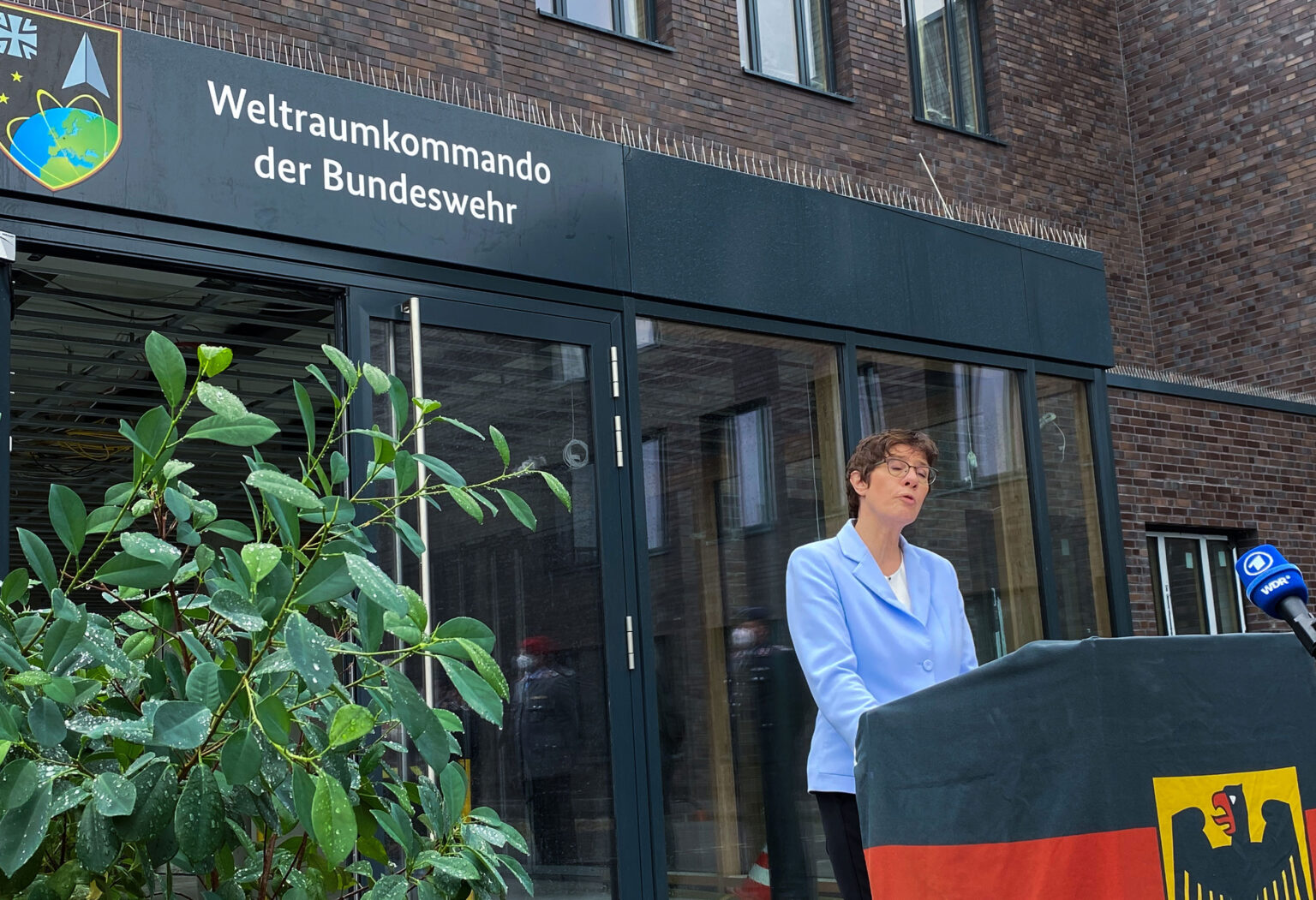REUTERS
Germany inaugurated a new space command in July 2021, following the lead of other Western countries amid growing concern over Russian and Chinese military advances in space and a surge in satellite launches.
In the past two years, France, the United Kingdom and the United States have established space commands — military bodies with responsibility for space operations — to address what they see as a threat from the People’s Republic of China (PRC) and Russia.
Military sources see the PRC and Russia as capable of waging war in space and damaging even advanced adversaries. At its summit in June 2021, NATO warned that it was ready to retaliate militarily if attacked in or from space, after designating space as a fifth domain of operations in 2019, alongside land, sea, air and cyberspace.
“Space has become a critical infrastructure that we need to secure,” German Defence Minister Annegret Kramp-Karrenbauer said in the small town of Uedem near the Dutch border. Germany’s space situation center there will be expanded into the new command. (Pictured: German Defence Minister Annegret Kramp-Karrenbauer inaugurates Germany’s new space command.)
The command’s main functions will be protecting satellites that provide the military with crucial communications services and surveillance data and disrupting an adversary’s satellite operations in the event of a conflict.
Also, it will tackle the threat to military and civilian devices in space from a fast-growing number of satellites and resulting debris.
Experts in Uedem are tracking about 30,000 pieces of space debris at least 10 centimeters in diameter, assumed to be large enough to destroy a typical satellite, according to the European Space Agency.
The debris is in addition to about 5,000 active and 3,400 inactive satellites in space, according to space data publisher Seradata.
The surge in satellite launches is mainly driven by commercial operators such as Elon Musk’s SpaceX and its Starlink network, which aims to launch tens of thousands of satellites to supply global space-based Wi-Fi.
IMAGE CREDIT: REUTERS

